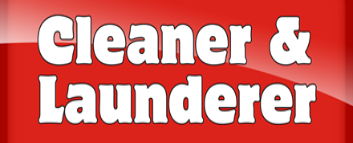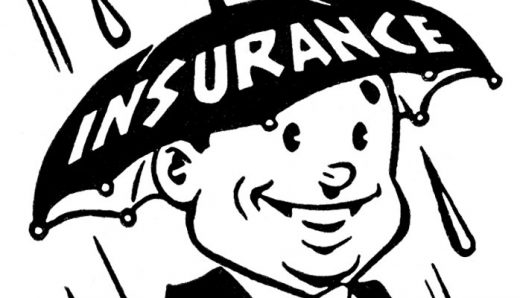DON’T skip this article because you think it will be boring or you are insurance savvy and know what you need to know. I have worked in the insurance industry (as well as owning my own dry cleaning plant) for too many years to count. Insurance policies are filled with too many words for the average person to understand and if you ever tried to read it, you would definitely fall asleep. I am going to try to be brief and hit the highlights of what you need to know. Some will be things you have never thought about. If you have additional questions, you need to call your insurance agent. There are many insurance agents around but the best business decision you can make is choosing an agent who knows your business. You might feel an allegiance to your brother, sister or cousin who is an insurance agent but do they REALLY know your business and what you need? It may not seem important but in the event of a claim, this could be devastating. You can afford to pay a customer for a $100 blouse but you need the best protection in the event of a CATASTROPHIC loss.
I deal with dry cleaner business owners every day. I want to discuss the everyday questions I receive and answer some of them so you can have some insight into what to expect of your Insurance Policy.
CUSTOMER CLOTHING (Bailee): It is a VERY important coverage that you must have on your policy. Agents who are not familiar with the dry cleaning industry frequently do not understand this coverage and only provide a minimum amount, if any. Make sure your policy has this coverage. In addition, your customers’ clothes need to be covered for process damage, missing clothes and clothes in transit (you may have routes) Unlimited Bailee is the best possible coverage, so ask for it.
DEDUCTIBLES: Almost every coverage has a deductible. Business persona property, customer’s clothes, money, signs, glass coverage all have deductibles. Try to live with the highest deductible you are comfortable with. Higher deductibles mean money in your pocket since the insurance companies will give additional credits for these higher deductibles. Business income/interruption coverage also has a deductible. This deductible is measured in terms of hours. Yes, hours. Before the coverage applies, you can have anywhere from 24 hour to 72 hour delay before the coverage applies.
CHANGES IN YOUR BUSINESS: Being the busy business owner that you are, often you do not think of notifying your insurance agent of any changes you have made. Did you buy new equipment? Call Your Agent. If you were to have a large fire loss, you need to have this equipment covered. Make sure your equipment values are up-to-date. Did you move or close your location? Call Your Agent. Policies need to be cancelled properly or you may be subject to additional premium due. Did you incorporate, or form an LLC? Call Your Agent. Did you finance a new piece of equipment or pay off an existing contract? Call Your Agent. In the event a loan ispaid off, it is important to notify your agent. I had an insured recently who did not inform us that he paid off a finance contract. He had a major loss and that finance bank was named on his settlement check. It was taken care of but it resulted in time wasted for him. Did you sell your business or buy a new one? Call Your Agent. Again, policies need to be cancelled properly. Otherwise this could result in earned premium that you will be responsible for.
EQUIPMENT BREAKDOWN COVERAGE: I’ve written several articles on this subject but it continues to be a problem. Mechanical breakdown coverage is a coverage of many dry cleaner policies. If the machine is not working because of wear and tear or rust and corrosion – THERE IS NO COVERAGE. The coverage is not meant to be a “maintenance” policy. If your equipment is old and worn, it will NOT be covered. Occasionally a claim is paid in error under this coverage. Insurance companies do make mistakes.
WORKER COMPENSATION: These policies are auditable. This means when the policy is issued, you give your best estimate of what you expect your payroll to be for the next 12 months. At the end of the policy term, the company will ask for your actual payroll. Some companies only want a 1-page sheet completed. Some companies want a questionnaire and copies of your 941 forms. Some companies want to come out and see your payroll records. If your payroll is higher than estimated, there will be money due. If it is lower, you will get money back. DO NOT IGNORE THIS AUDIT. If you do not respond to the audit inquiry, the company will process an “estimated” audit. This audit is approximately 15% higher than the estimated premium. You will be responsible for paying it. So, always comply with the final audit request!
I have tried to cover the usual questions that are commonplace. Always be aware. Always ask questions.
It still amazes me how many times people don’t notify their insurance agent when they make changes in their business!

